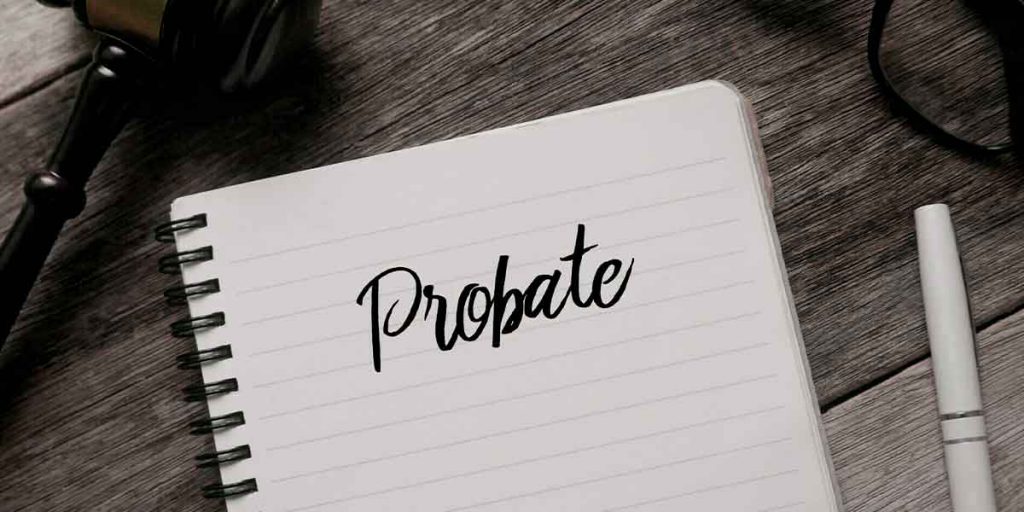When you write a will, it remains inactive until you pass away. And when that happens, your will has to be taken to court before your named executor can be granted legal authority over your estate and to carry out your instructions in the will. The moment your will gets admitted into court, probate has begun.
What is probate?
Probate is a legal process whereby a will gets validated by the court after the death of the testator before the intents of the will are carried out. Probate is always conducted in the state (in the county specifically) where the decedent lived and/or owned property at the time of death.
Probate in Long Island takes place in a probate court known as a Surrogate’s court.
The process is a lengthy one and can take months or oven more than a year before the executor can distribute the estate to the beneficiaries. In fact, distribution is the last phase of probate before the estate is pronounced closed.
So what are these phases or steps involved in probate?
The Long Island Probate in 7 Steps
1. Admitting the will into court
When the testator passes away, the executor they named in the will brings out the will from wherever it’s kept and files it to the probate court in the appropriate county, alongside the decedent’s death certificate and a written petition. The court then checks the will to determine if it meets all Long Island, NY laws for validity. If valid, the court gives the executor a document known as Letters Testamentary granting them authority to manage the estate and carry out their duties. (The duties of the executor have already begun with filing the will to court, and continue with the steps below). The court will also schedule a date for a court hearing.
Now you may ask, what if there’s no will? Or what if the will isn’t valid?
In the absence of a valid will, then there is no executor named. But the estate will still be probated so that there can be lawful distribution. This situation is known as intestacy
Intestacy in Long Island
Anyone in the family can file a petition along with the probate petition to court. The court will then appoint an agent known as estate administrator to carry out exactly the same duties of the executor as below (beginning from step 2). However, in intestacy, the wishes of the testator are not known so their estate will be distributed according to New York laws. The default heirs in this case are the surviving spouse and children only, if they are alive.
2. Notifying the public of probate commencement and court hearing
The executor (or the estate administrator) must then notify the public of the commencement of probate and the court hearing. The reason is so that anyone that has a claim in the estate, such as estranged children, creditors, etc., can come forward with their claims.
3. Court hearing
During the court hearing, any dissatisfied party can air their grievance with the will. They can allege the will to be invalid, containing misconduct or foul play. This action is known as a will contest.
4. Accounting for all assets and valuating the estate
The executor will then proceed to taking note of all the decedent owned in their name and estimating their value. He must then open a checking account from which he will settle estate taxes, probate expenses, creditors, and funeral expenses.
5. Filing estate tax returns
There is a time limit for the executor to file estate tax return forms or else face penalties., He must therefore do so early enough.
6. Settling estate taxes, probate costs, creditors, and funeral expenses
The next step involves settling the financial obligations of the decedent. This is a very critical aspect of probate Long Island. There is an order of priority. Typically, if there is insufficient funds in the estate, then some creditors may have to let go. To know how to prioritize payments, consult a Long Island probate attorney.
7. Disbursing the estate
This is the last phase of probate. The executor must first file an accounting record to the court. If his record is clear fraud-free, he is given authority to distribute the estate according to the will or intestacy laws as the case may be.
Note – Only estates valuing above $30,000 in New York may be probated.
Probate assets
Probate Assets are assets held in the name of the decedent only. these are the only assets that will pass through probate.
The following assets will pass outside probate:
- Assets held in a trust
- Property held jointly with rights of survivorship
- Life insurance proceeds
- Retirement accounts such as 401(k)
- Payable-on-death bank accounts
Get help from a probate lawyer Long Island
As is obvious, probate involves several things. Any slight mistake may lead to litigation. To ensure you perform your roles efficiently as an executor, get help from a Long Island probate lawyer near you.









